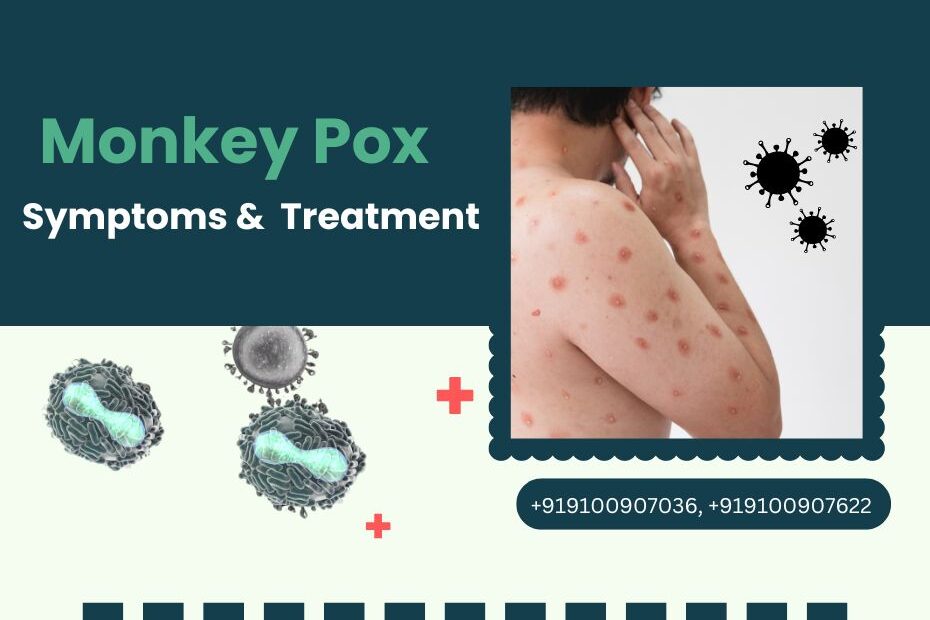WHO has declared monkeypox or Mpox a global emergency and pandemic, given the recent outbreak in multiple countries across the world. The Mpox virus is native to Africa, but 2022-2023 has seen Mpox outbreaks in more than 110 countries. A highly infectious disease, Mpox has already infected over 1 lakh people and has already claimed around 450 lives. It is essential to understand that another virus might become as commonplace as COVID-19; therefore, we need to know more about it and learn how to protect ourselves from it.
What is the monkeypox virus or Mpox virus?
Primarily, monkeypox is an animal infection; it causes viral infections in animals such as monkeys. Monkeypox virus is very closely related to the smallpox virus and is in the same group of orthopox viruses. These viruses share several presentations that are similar to each other, including the rash. When the monkeypox virus started infecting humans, it was renamed Mpox. The first case was observed in Congo in 2022, causing a global outbreak that has now snowballed into a Public health emergency of international concern, as declared by WHO on 14 August 2024.
The predominant circulating strains of Mpox are Clade I and Clade II, with a new Clade Ib strain gaining momentum.
What are the symptoms of the monkeypox virus?
The main symptom is a rash; the person infected can spread the disease from the day the symptoms are visible to the day the rash gets crusted. The duration of symptoms is between 3-17 days. The following are symptoms of Mpox to watch for.
1. fever and swollen lymph nodes
2. fatigue and muscle pain
3. Rash in the form of macules and pustules is finally being replaced by scabs and crusts. The crash can sometimes cover the entire body, including palms and soles.
4. In some people, it may be asymptomatic
5. In some patients, like children, pregnant women, older adults, and HIV-infected individuals with poor immune systems, there can also be complications such as sepsis, pneumonia, and inflammation of the brain or heart. In such a population, the death rate, which is estimated to be around 100, also increases.

How does monkeypox spread?
Monkeypox transmission can be transmitted in two ways, that is, via human to human or monkey to human in areas like Africa, especially in animal meat handlers, hunters as well as farmers in the endemic area of the disease in Africa.
Human transmission of Mpox can occur in the following ways:
1. Contact with bodily fluid and also fluid from rashes
2. Sexual contact with an infected person
3. through Lenin or the clothes of an infected person
4. Mother-to-child transmission of Mpox is also possible during childbirth.
5. respiratory droplets
6. Contaminated tattoo instruments or needles
Who is at a higher risk of monkeypox?
The initial driver of mpox infections globally was sexual contact with the infected person; therefore, the following populations are most vulnerable to Mpox infection:
1. Gays and bisexual men
2. Women and children
3. Sex workers
4. Healthcare workers
5. people with sexually transmitted diseases like HIV
6. Animal handlers and farmers or hunters
How is monkeypox or Mpox diagnosed?
If there is a clinical suspicion of Mpox, a sample from the mucous lesion or rash is taken and sent for a PCR or polymerized chain reaction test.
Mpox can also be diagnosed with the help of other tests, such as viral culture and serology, but these tests have lower sensitivity and are more expensive.
How is Mpox treated?
Mpox is primarily treated with supportive treatment, such as pain relief, proper cleaning and care of skin and eyes, reasonable and balanced food, and lots of fluids. Antivirals may sometimes be used, but the most effective antiviral is yet to be found.
How do we protect ourselves from monkeypox?
The thing about pandemics is that one is always at risk of getting infected due to unidentified or asymptomatic cases. Therefore, proper precautions need to be observed. Some of the tips to prevent Mpox are as follows:
- avoid crowded places
- maintain distance from infected individuals
- practice caution while engaging in sexual encounters with multiple partners
- Observe hand hygiene
- Wear a mask in overcrowded places
- Susceptible groups can get vaccinated, which is available as a two-dose vaccine called JYNNEOS. More vaccines are still undergoing research and development and will be out in a while
- Maintain good health and immunity
- Proper surveillance, awareness, guidelines, and intervention are all essential steps that the governing bodies need to take to make sure that the public is safe and that the disease doesn’t spread unchecked
Final thoughts
The Mpox pandemic is spreading across the world like wildfire, with several cases being reported even in Indian cities every day. We need to keep looking for new updates from WHO and other health organizations to be aware and stay protected.
In most cases, patients suffering from Mpox have shown excellent recovery with proper recovery; therefore, there is no reason to panic.
Following proper precautions is essential, and it is a personal responsibility to stop this pandemic.
As we have seen already, monkeypox can be spread in many ways, ostracizing or having a critical opinion of people based on incomplete.
Lack of Information and understanding of the patient’s circumstances can create unnecessary taboos and hinder their recovery. Please be kind, and we can end this pandemic together.
Make an appointment just in few minutes – Call Us Now +919100907036, +919100907622

